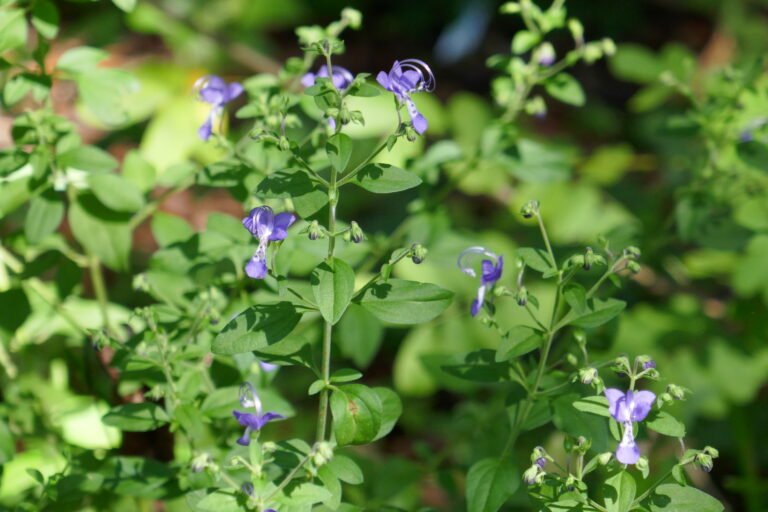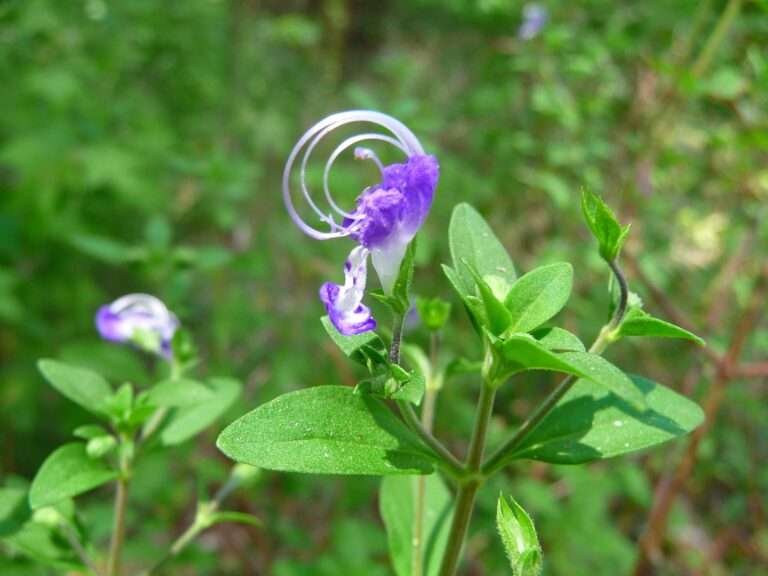
Trichostema dichotomum
(Forked Bluecurls)

Common Names, Latin Name and Family
Its common names are forked bluecurls and common bluecurls.
Its Latin name is Trichostema dichotomum.
It is in the Lamiaceae, or mint, family.
Form
A perennial wildflower that grows to a height of 3 feet tall.

Leaves
The leaves are opposite with entire or toothed margins and elliptic to lanceolate in shape.

Flowers
The brilliant blue flowers appear in the summer and fall.

Habitat
It occurs naturally in pinelands, sandhills, fields, and open forests.
Native Range
It is native to the southeastern United States and can be found from Florida north into Canada.
It is native to AL, AR, CT, DC, DE, FL, GA, IA, IL, IN, KY, LA, MA, MD, ME, MI, MO, MS, NC, NH, NJ, NY, OH, OK, PA, RI, SC, TN, TX, VA,VT, and WV.
Landscape Use
In the home landscape it grows in part shade with average to dry soils.
Some literature lists it as an annual. However, in frost free areas it grows as a perennial.
Wildlife Uses
Bees and other small pollinators use the flowers for a source of nectar and pollen.
Propagation
It can be grown from seed or transplanted when small.
Larger specimens can be transplanted if most of the upper foliage is removed and it is kept moist until new growth appears.